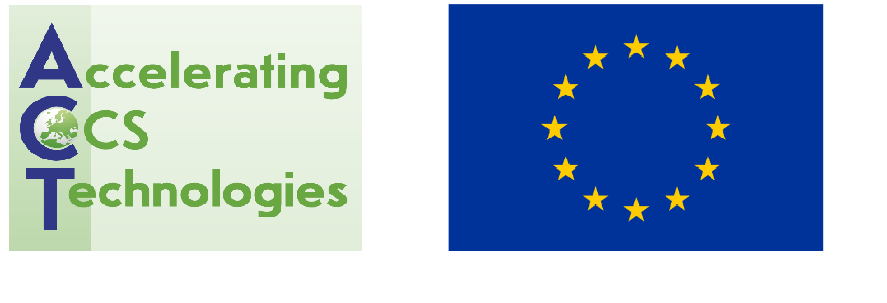The ACT consortium welcomes you to the 7th ACT Knowledge Sharing Workshop.
The Workshop will take place in Paris 4th and 5th October 2023. The focus of the Workshop is to share knowledge, experiences and results gained in the ongoing ACT3 projects and the knowledge and the ambitions of ACT4 projects. Furthermore, we believe the workshop will be an excellent opportunity for generating new ideas and building new networks.
You will find all details in the invitation included below.
Invitation to the ACT Knowledge Sharing Workshop
Online participation is possible from this link: Click here to join the meeting.
Venue
Agence Nationale de la Recherche (ANR), 86 Rue Regnault, 75013 Paris, France
Program
Wednesday October 4th, 2023
09:00 Welcome to the ACT Knowledge Sharing Workshop 2023, Gerdi Breembroek, RVO / ACT
09:15 Presentation of French Ministry of Education, Xavier Montagne
09:30 Presentation of ANR, Pascal Bain
09:45 Presentation of ADEME, Anne Varet
10:00 Coffee break
10:20 Building industrial case for CO2 capture (85 minutes)
Moderator: Andrew Hlasko, US DOE
Introductory presentations (10 minutes each)
Chemical looping technologies (the LOUISE project), Jochen Ströhle, Technische Universität Darmstadt
Solid adsorbent looping technology (the ABSALT project), Colin Snape, University of Nottingham
Sustainable operation of CO2 capture plants (the SCOPE project), Hanne Kvamsdal, SINTEF
CO2 Capture on ships (the EverLoNG project), Marco Linders, TNO
Panel discussion on industrial cases for CO2 capture (45 minutes)
11:45 Lunch and networking
13:30 Future possibilities within the Clean Energy Transition Partnership (CETP), Gerdi Breembroek, RVO / ACT
14:00 Building business cases for sustainable CO2 utilisation (100 minutes)
Moderator: Pascal Bain, ANR
Introductory presentations (10 minutes each)
Convert CO2 to biofuels and chemicals (the CooCE project), Rocio A. Diaz-Chavez, Imperial College London
Conversion of CO2 from cement plant (the CREATE project), Tim Stauft, Carbonova
Convert CO2 to Ethylene (the CoCaCO2La project), Feifei Zhang, TWI,
Convert CO2 to methanol (the NEXTCCUS project), Mahmoud Zendehdel, IRITALY Trading Company
Panel discussion on sustainable business cases for CO2 utilisation (60 minutes)
15:40 Coffee break
16:00 Poster session
17:30 Dinner cocktail
Thursday October 5th, 2023
09:00 Carbon sinks: What role can research play or have in accelerating their development in France? Guillaume Boissonnet, CEA
09:30 Key note presentation – The role of CCUS in the green transition, Joop Hazenberg, ZEP (Zero Emission Platform)
10:00 Coffee break
10:15 Upscaling to CO2 storage in giga-ton scale (90 minutes)
Moderator: Gerdi Breembroek, RVO
Introductory presentations (10 minutes each)
De-risiking CO2 storage (the SHARP project), Elin Skurtveit, NGI
Micro seismic monitoring of storage sites (the ENSURE project), Volker Oye, NORSAR
New cement for CO2 storage (the CEMENTEGRITY project), Reinier van Noort, IFE
Re-using depleted fields for CO2 storage (The RETURN project), Jelena Todorovic, SINTEF
Connecting CO2 sources and sinks (the ACTION project), Anna Korre, Imperial College
Panel discussion on upscaling to giga-ton CO2 storage (40 minutes)
11:45 Lunch and networking
13:30 Research and innovation needed for CCUS deployment (70 minutes)
Moderator: Heiko Gerhauser, PT Jülich
Introductory presentations (5 minutes each)
New concept for CO2 Capture (the MeDORA project), Roberta Veronezi Figueiredo, TNO
Carbon sequestration in cement (the 3D Printing project), Souradeep Gupta, Indian Institute of Science Bangalore
Carbon conversion to cementitious materials for buildings (the MACE project), Ana Aday, NREL
Storing CO2 in basalts (the PERBAS project), Jörg Bialas, GEOMAR
Monitoring CO2 storage sites (the SPARSE project), Peder Eliasson, SINTEF
CO2 injection program for depleted gas reservoirs (the AMIGO project), Rick Chalaturnyk, University of Alberta
Panel discussion on research and innovation needed for CCUS deployment (40 min)
14:40 French ministry subject of CCS&CCU in France, Carol Paquier
15:10 Closing the workshop (5 minutes), Gerdi Breembroek, RVO / ACT
15:40, City walk
18:15, Social program
Boat trip on the Seine, including dinner. Boat leaving 18.45. All must be ready to enter the boat at 18:15. The social program will end at approximately 20:00


